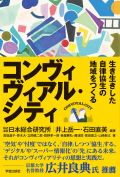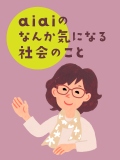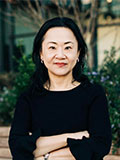六本木ヒルズライブラリー
英語で語ろう友の会 2013年4月の定例会
メンバーズ・コミュニティ
更新日 : 2013年05月31日
(金)
Regular meeting in April
2013年4月19日(金)19:00~21:00
Content-based discussion is tough, but significant
We had a regular meeting on April 12 as a fresh start of our English speaking society in 2013. Seven people gathered for the annual meeting on the weekend. The fluency of the participants’ English was really good to discuss several current topics.
First, we discussed the likely introduction of TOEFL to a bureaucratic organization
to deal with global diplomatic issues. The idea of introducing TOEFL to government offices has been discussed since long under the wave of the globalization. However, TOEFL is the test for college students to enter American or Canadian universities. The high score of TOEFL proves that he can have a good job to discuss academic topics and submit term papers in the class. We wonder if governmental officials really understand what TOEFL means to them. If they want to show their English skills, they should take TOEIC, which proves the skills to deal with business matters in English. However, we often hear that even those who have high scores of TOEIC can not have international negotiations efficiently because of the lack of real communication skills in English. We can have several examples how hard it is to exchange ideas and information in English without extracting the cases in Uniqlo, Nissan, and Teijin. One might say that each person has to brush up his English without relying on language school or English test if he wants to be a global communicator.
to deal with global diplomatic issues. The idea of introducing TOEFL to government offices has been discussed since long under the wave of the globalization. However, TOEFL is the test for college students to enter American or Canadian universities. The high score of TOEFL proves that he can have a good job to discuss academic topics and submit term papers in the class. We wonder if governmental officials really understand what TOEFL means to them. If they want to show their English skills, they should take TOEIC, which proves the skills to deal with business matters in English. However, we often hear that even those who have high scores of TOEIC can not have international negotiations efficiently because of the lack of real communication skills in English. We can have several examples how hard it is to exchange ideas and information in English without extracting the cases in Uniqlo, Nissan, and Teijin. One might say that each person has to brush up his English without relying on language school or English test if he wants to be a global communicator.
Second, we talked about Myanmar opposition leader Aung San Suu Kyi’s visit to Japan. There are some young participants at that day, so the discussion about her visit to our country seemed to be unexciting. Middle-aged people know about Suu Kyi, because she is their contemporary and they know quite well about house arrest. The article explains that she was released from the house arrest. Suu Kyi might have come to terms ,to some extent, with the military government to make Myanmar go democratic. I as a chairperson had a hard time to explain the issue because young people can not even know her name and the history of Myanmar in Asia. Suu Kyi’s English is very beautiful, because she had studied in Britain when she was young. In other words, she can think and act like westerners though she has an Asian appearance. Her patience towards the intolerance of the military government of Myanmar might come from her long staying experience in foreign countries including her stay in Japan. She answered the question of a student of Kyoto university in her lecture, “Myanmar really needs to have democracy because the civil right has been violated in the past.” We hope that young people in Japan become really interested in political situations of Myanmar as Asian neighbors.
As a topic of the day, we discussed the issue of North Korean missile threat. The situations of Korean Peninsula is in the middle of a hair-trigger one. Everyone of us have paid attention to the news of television in the past several weeks. We had a debate with the title of “whether we can be optimistic about North Korea’s missile threat or not.” Both teams share the view that North Korea doesn’t have any nuclear-tipped missiles for the moment. The point is whether the North Korean leader Kim Jong Un’s strategy to give much psychological pressure towards U. S. turns out to be successful or not. U. S. as a matured nation, has never been provoked by the North threatening behavior. Kim Jong Un seems to know that launching a missile brings down ruin on the global society. As a participant said, the ultimate goal of Jong Un is to maintain Kim’s dictatorial regime in North Korea. The global society has to deal with North Korean issue by a carrot-and-stick policy for the time being.
We share a view that democracy is the best policy at the global community, though there is a number of problems such as poverty, discrimination, or monopoly.
Written by
Junichi Saito
We share a view that democracy is the best policy at the global community, though there is a number of problems such as poverty, discrimination, or monopoly.
Written by
Junichi Saito
注目の記事
-
04月22日 (火) 更新
本から「いま」が見えてくる新刊10選 ~2025年4月~
毎日出版されるたくさんの本を眺めていると、世の中の"いま"が見えてくる。新刊書籍の中から、今知っておきたいテーマを扱った10冊の本を紹介しま....
-
04月22日 (火) 更新
aiaiのなんか気になる社会のこと
「aiaiのなんか気になる社会のこと」は、「社会課題」よりもっと手前の「ちょっと気になる社会のこと」に目を向けながら、一市民としての視点や選....
-
04月22日 (火) 更新
米大学卒業式の注目スピーチから得られる学び<イベントレポート>
ニューヨークを拠点に地政学リスク分析の分野でご活躍され、米国社会、日本社会を鋭く分析されているライターの渡邊裕子さんに、アメリカの大学の卒業....
現在募集中のイベント
-
開催日 : 05月19日 (月) 12:30~14:15
ジェラルド・カーティス氏 特別講演「これからの民主主義」
コロンビア大学政治学名誉教授のジェラルド・カーティス氏をお迎えし、トランプ政権の今後の展望と、これからの民主主義の可能性についてご講演いただ....














